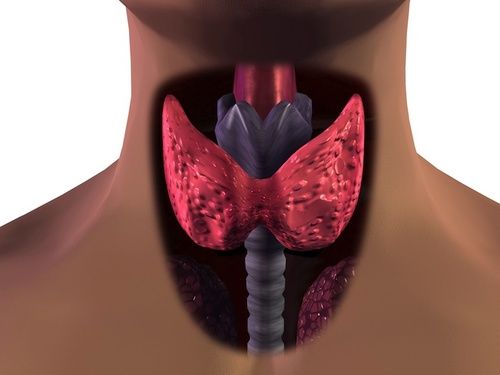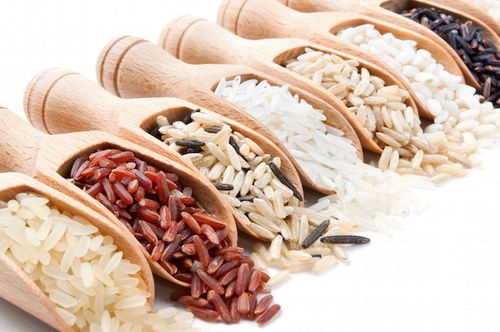Thyroidism: symptoms, causes, all remedies
Thyroidism is an alteration in the amount of hormones present in the blood, due to a malfunction of the thyroid . This regulates metabolism, physical and mental development and controls the activity of the heart. Let’s find out more about the ailments that can affect you.
> Types of thyroidism
> Symptoms of thyroidism
> Causes
> Diagnosis
> Treatments against thyroidism
The thyroid, an endocrine gland that regulates metabolism

Types of thyroidism
The thyroid is an endocrine gland located in the neck midway in front of the larynx and trachea, formed by two lateral lobes connected by a thin isthmus. It produces the so-called thyroid hormones , composed of iodine according to a secretion regulated by the thyrotropic hormone (TSH), produced by the pituitary; another hormone, calcitonin, takes part in the metabolism of calcium. The thyroid is as precious as it is versatile . It regulates metabolism, controls heart activity, affects nervous excitability, stimulates skeletal growth, sexual maturation and psychic development.
Thyroidism is an alteration in the amount of hormones present in the blood. We speak of hyperthyroidism if this activity is higher than normal, hypothyroidism if it is lower. We speak of thyroiditis instead in the case in which there is an inflammation of the thyroid gland
Symptoms of thyroidism
Hyperthyroidism is due to overactivity of the thyroid which undergoes an enlargement. This phenomenon can manifest itself as a single node (adenoma or Plummer’s disease) or multiple (toxic nodular goiter). In other cases, a diffuse and homogeneous increase in the thyroid gland occurs (diffuse toxic goiter or Graves ‘or Graves’ disease). After diabetes mellitus, this form of endocrinological disease is perhaps the most widespread and mainly affects women between the ages of 20 and 40.. It manifests itself with goiter, signs of ocular pain, tachycardia and hypertension, nervousness, weight loss which corresponds to an increase in appetite, warm and wet hands, intolerance to heat. In drug therapy, antithyroid drugs are used which must be taken constantly to avoid the risk of cardiocirculatory and ocular lesions.
Hypothyroidism, on the other hand, is manifested by chronic drowsiness and fatigue, paleness, anemia, constipation, weight gain.
Finally, thyroiditis manifests itself with high fever and swelling accompanied by sharp pain in the anterior region of the neck.
Causes
The perthyroidism is due to overactivity of the thyroid which undergoes an enlargement.
Hypothyroidism is due to the lack of thyroid hormones, with a slowing down of metabolic processes affecting all organs and systems. In some cases, it can also depend on an iodine deficiency, autoimmune diseases such as Hashimoto’s thyroiditis, and pathologies affecting the pituitary gland (rarer case).
Thyroiditis , on the other hand, is frequently due to a bacterial infection and is manifested by a high fever and swelling accompanied by sharp pain in the anterior region of the neck .
Diagnosis
To diagnose one of the thyroid pathologies, a simple blood test is used which doses the hormone produced to regulate it, THS . This hormone will present with high levels when the thyroid functions poorly, and with low levels when the thyroid functions as much. In the first case we speak of hypothyroidism.
Furthermore, through blood tests, it is also possible to measure thyroxine and re-iodothyronine , whose levels will be low in case of hypothyroidism, while they will rise in hyperthyroidism.
Finally, if the presence of nodules is suspected, an ultrasound scan can be used to help in the diagnosis.
Thyroidism among the causes of fatigue: find out how to cure it

TREATMENTS FOR THYROIDISM
Nutrition in case of thyroidism
Iodine is the key factor in restoring the function of the thyroid gland. However, this is generally true, because the disorder recognizes different causes of origin and therefore the response to oral iodine supplementation may be different. Seaweed is a very precious source of iodine , the same goes for coconut oil . Some foods such as cabbage, broccoli, turnips, flax seeds, soy , seem to modify the need for iodine, increasing it and that is why they should be consumed with awareness in cases of iodine deficiency hypothyroidism.
Even selenium deficiency has been studied can greatly affect the well-being of the thyroid gland. Selenium is a formidable antioxidant found in peanuts , beans, corn, Parmesan, lentils, pistachios and Brazilian nut oil .
There are also natural supplements, food and phytotherapeutic, of selenium , useful for the proper functioning of the thyroid.
Remember that the frequency of meals and the distance between one meal and another greatly influence the activity of the thyroid, this is because during fasting the sensitivity of the tissues to thyroid hormones decreases.You can learn more about all selenium-rich foods and their properties

Herbal remedies
It should be noted that thyroid disorders vary greatly depending on the case, one must understand the origin of the dysfunction, have the opinion of an endocrinologist and possibly support it with that of a herbalist, to discuss the additions with both specialists. However, the most common remedy for thyroid dysfunction remains the fucus , which, not surprisingly, is an alga that thrives in cold seas.
Due to its natural iodine content, fucus has a stimulating effect on the thyroid and is therefore excellent in case of hypothyroidism. This property was discovered in 1862 by Dr. Duchesne-Duparc , who detected weight loss in a patient to whom he was administering it, for a treatment of chronic psoriasis. He pointed out that the weight loss was caused by the stimulation of the thyroid gland.
Traditional Chinese Medicine
The thyroid gland is very receptive to the effect of needles , as it is a very surface gland rich in vessels and nerve endings. Chinese acupuncture has so far given excellent results in cases of hyperthyroidism and medium-sized hypothyroidism, on thyroiditis and on autoimmune ones, such as Hashimoto’s thyroiditis. An average of 3-5 sessions are needed for hyperthyroidism and 5-7 for hypothyroidism. Chinese medicinal mushrooms are also helpful in relieving the symptoms of Hashimoto’s thyroiditis.
Homeopathic remedies for thyroidism
Treatment of thyroidism with homeopathy is closely linked to the stage of dysfunction and its genesis. In numerous conditions of subclinical hypothyroidism, a good homeopathic therapy can certainly be able to support the functional recovery of the thyroid gland, avoiding further aggravations that lead to manifest hypothyroidism.
Exercises
We urge you to stay away from using thyroid hormones in sports. These are taken precisely with the aim of increasing the body metabolism, consequently reducing excess fat reserves. Many weight loss medications are also based on thyroid hormone precursors.
Taking precursors from the outside reduces the stimulus for endogenous production with the risk of undergoing hypothyroidism, thyroid dysfunction or chronic hypothyroidism (in case of prolonged administration) once the intake is suspended.
But if you listen carefully to your body, if you already take them: you will find that already during the intake cycle there will be common side effects such as tachycardia, strong sweating, excessive weight loss, nervousness, diarrhea, bone demineralization and heart problems.






























+ There are no comments
Add yours